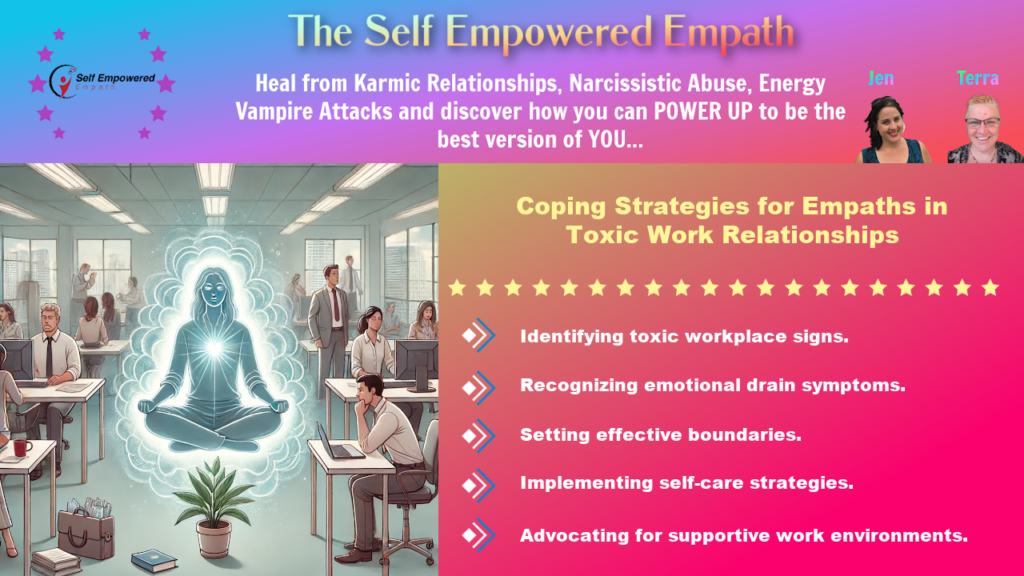
3. Recognizing Signs of Emotional Drain for the Empath
Emotional Drain
Feeling drained, overwhelmed, and unable to cope with daily tasks, you find yourself struggling to muster the energy to get out of bed in the morning, constantly battling a sense of fatigue that lingers no matter how much rest you attain. Simple chores that once were routine now feel like insurmountable obstacles, and your mind is swamped with racing thoughts and anxieties that never seem to cease. The weight of responsibilities becomes heavier each day, making it difficult to focus or find any semblance of balance in your life.
Detachment
Emotional disengagement, lack of interest, and apathy towards work are often symptoms of deeper underlying issues such as burnout, unfulfilling tasks, or a mismatch between personal values and organizational goals. These feelings can lead to decreased productivity, strained relationships with colleagues, and an overall decline in workplace morale. Understanding and addressing the root causes of these emotions are essential for fostering a more motivated and engaged work environment.
Regular check-ins, support from leadership, and opportunities for professional growth can help employees reconnect with their work and find renewed purpose in their roles.
Decreased Productivity
Decline in performance, creativity, and motivation can have a significant impact on both personal and professional life, leading to decreased productivity and a lack of enthusiasm for tasks that were once enjoyable or challenging. Factors such as burnout, stress, and lack of proper support or resources often contribute to this decline, making it essential to address these issues promptly. Without intervention, this downward spiral can result in long-term negative consequences for one’s mental and emotional well-being.
Cynicism
Pessimism, frustration, and a negative outlook on work and colleagues can significantly affect one’s productivity and overall workplace morale. When employees constantly feel unvalued or overwhelmed by their tasks, it can lead to a toxic environment where collaboration and innovation are stifled. This pervasive negativity doesn’t just impact individual mental health but also hampers team dynamics, leading to decreased engagement and higher turnover rates.
Physical Symptoms
Frequent headaches, insomnia, and other stress-related health issues can significantly impact daily life, making it challenging to perform routine tasks, maintain relationships, and enjoy leisure activities. When stress levels are high, the body’s natural response is to release hormones that can exacerbate symptoms such as tension headaches and interfere with sleep patterns, leading to chronic insomnia. Additionally, prolonged stress may contribute to other conditions like digestive problems, hypertension, and weakened immunity, further complicating one’s overall health and well-being.
Absenteeism
Increased sick days, lateness, and unexplained absences have become a significant concern, impacting not only individual productivity but also the overall team’s efficiency and morale. These issues can lead to delays in project timelines, increased workload for other team members, and potential financial losses for the organization. Consequently, it is vital to identify the underlying causes and implement effective strategies to mitigate these challenges, fostering a healthier and more motivated work environment.
Poor Work/Life Balance
Difficulty separating work from personal life, leading to constant work-related thoughts and stress. This ongoing challenge often results in feeling overwhelmed and experiencing burnout, as the lines between professional responsibilities and personal time become increasingly blurred. Consequently, it becomes harder to relax and enjoy leisure activities, exacerbating feelings of anxiety and fatigue.
Isolation
Withdrawal from colleagues, avoiding social interactions, and feeling unsupported can negatively impact one’s mental health, leading to increased feelings of isolation, anxiety, and depression. This cycle of disengagement can create barriers to effective teamwork and collaboration, ultimately affecting productivity and job satisfaction. Furthermore, the lack of a support system can exacerbate stress and diminish overall well-being, making it crucial for individuals to foster healthy workplace relationships and seek help when needed.
Emotional Outbursts
Increased irritability, mood swings, and emotional outbursts at work have been affecting not only personal productivity but also the overall team morale. These emotional fluctuations can lead to misunderstandings, strained relationships, and a lack of effective communication among colleagues. Consequently, the work environment can become tense, making it challenging for everyone involved to focus on their tasks and achieve their goals.
Reduced Job Satisfaction
Lack of fulfillment and happiness in one’s role can create a deep sense of dissatisfaction, leading to a strong desire to leave the job. This often stems from feeling unappreciated, not challenged, or misaligned with the company’s values, contributing to a decline in motivation and productivity. Consequently, the individual may experience increased stress and burnout, prompting them to seek new opportunities that promise personal growth, better work-life balance, and a more supportive environment.











